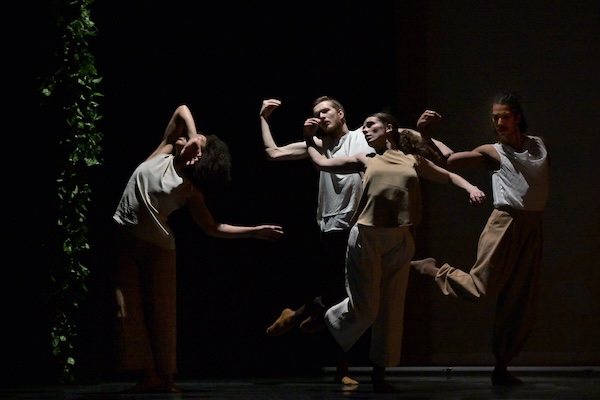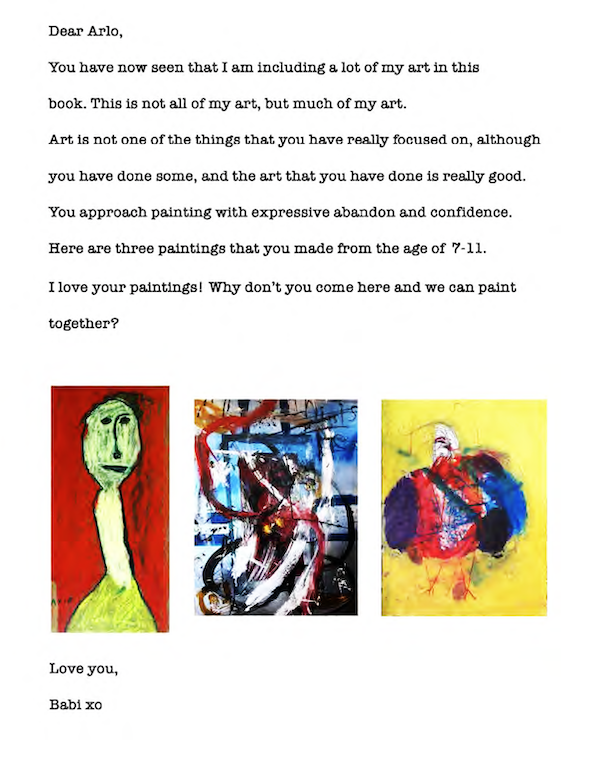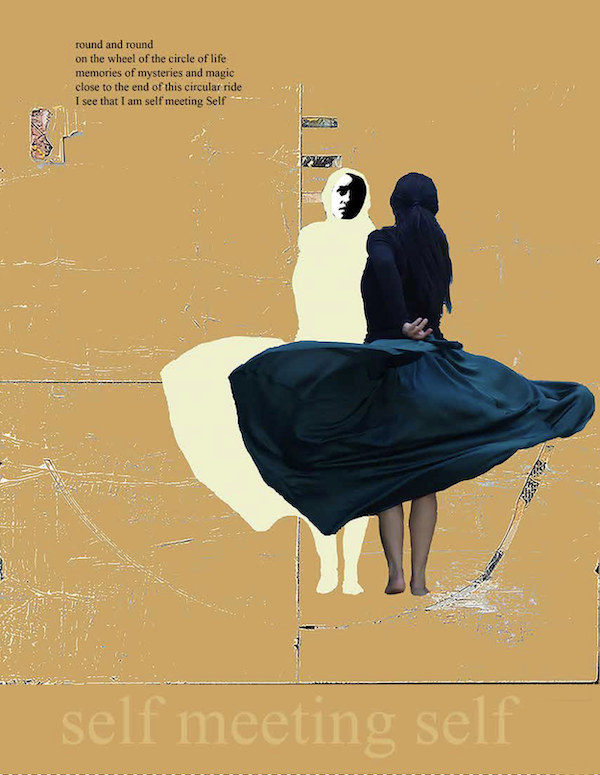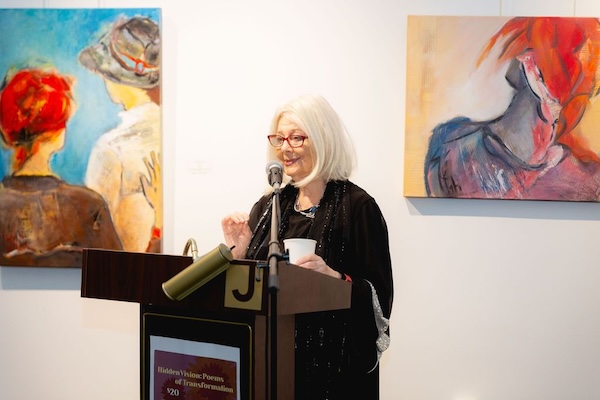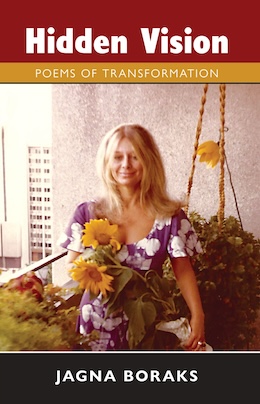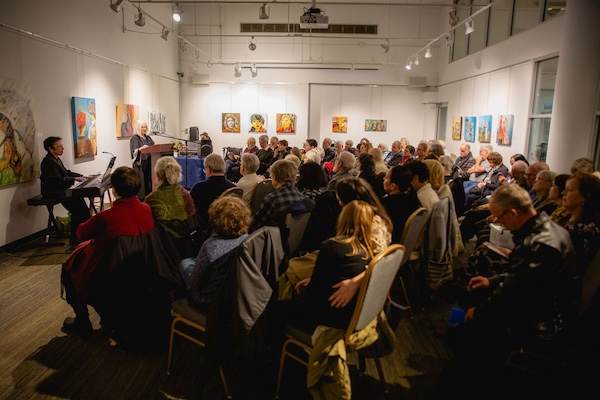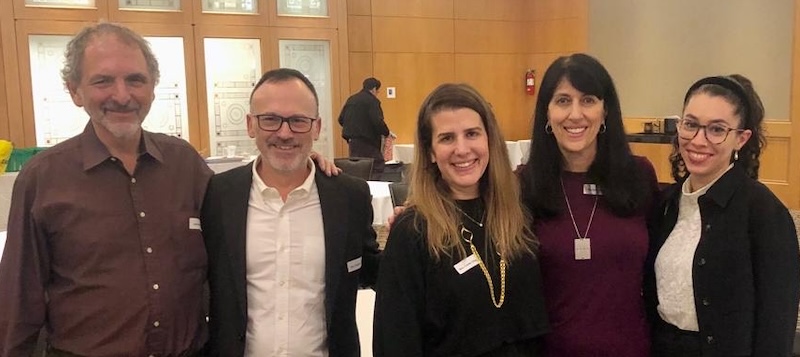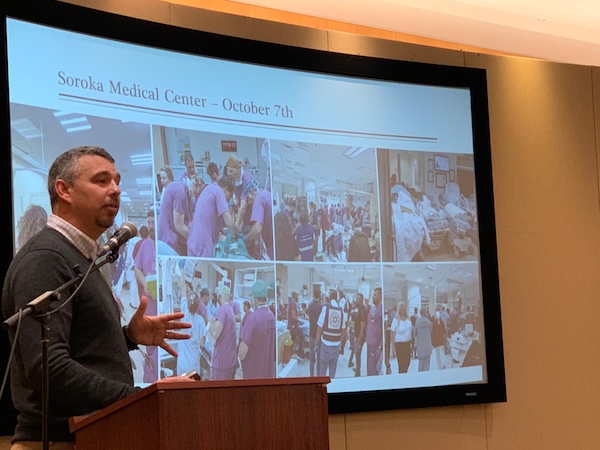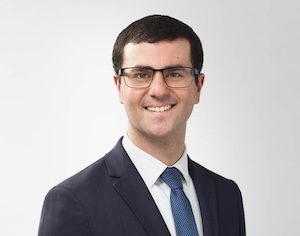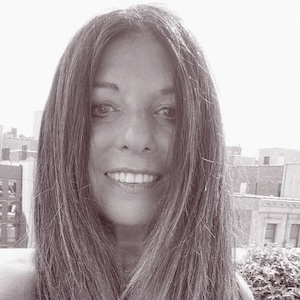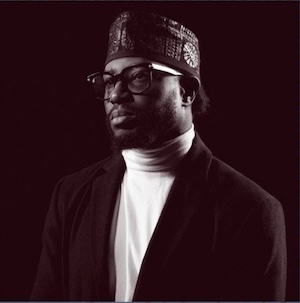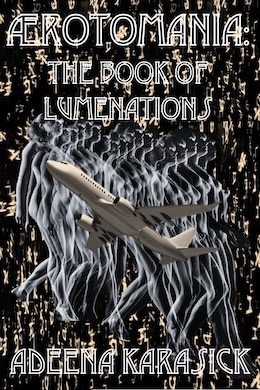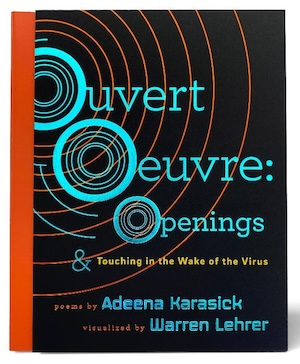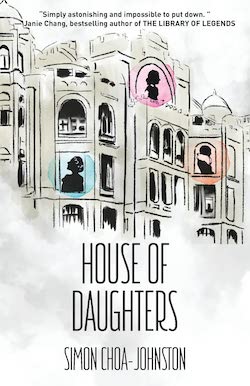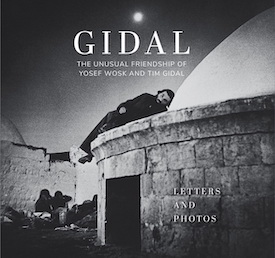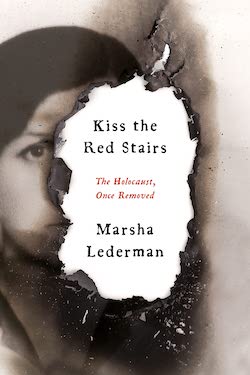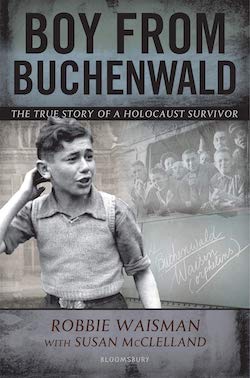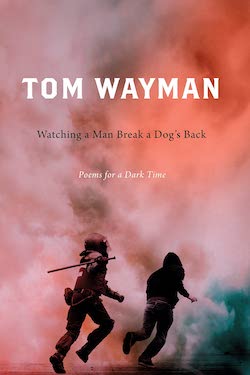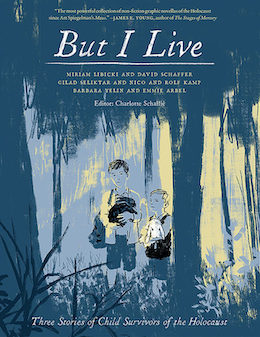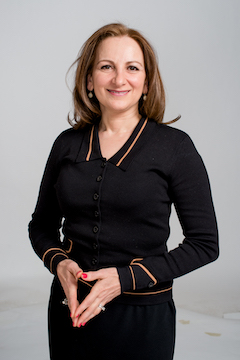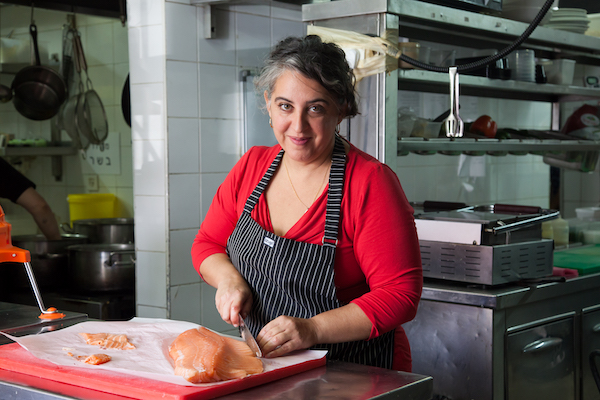Belle Spirale’s dance double-bill, Universus, is at the Vancouver Playhouse March 21-22, as part of the Chutzpah! Plus Spring Edition. (photo © Michael Slobodian)
“As I think many of us are right now, I am feeling sense of trepidation, endangerment and uncertainty about the future that I have honestly never felt before in this way. My faith in the future and humanity’s ability to call in a future that I want (for myself and also for future generations) has been shaken to the core,” Alexis Fletcher told the Independent. “And yet, my spirit knows that hope, togetherness, connection – they are all necessary. Indeed, they are what propel the world, evolution, the cosmos and each other forward. Everything and Nothing asks what hope and resiliency mean to me – as a woman, as an artist, as a citizen – at this moment in history.”
Fletcher is co-director with Sylvain Senez of Belle Spirale Dance Projects. Their March 21-22, 8 p.m., Chutzpah! Festival dance double-bill at the Vancouver Playhouse, called Universus, also features Fernando Hernando Magadan’s Statera.
The title of Belle Spirale’s Everything and Nothing comes from a poem Fletcher wrote several years ago, “exploring the idea that we are at once both the entire universe and a tiny speck of almost nothingness within the vastness of that universe. That we are both ‘everything and nothing in the same split-instant,’” she said.
Acknowledging that this was a broad place from which to start, she and the dancers asked themselves, “Who are the leaders of the future that we actually want? How can we create an imagination-based, artistic response to these important questions and feelings? I see so many qualities of this leadership in each and every person who is making Universus with us,” said Fletcher. “I have been curious about what the archetypes, or the energetic qualities, these future leaders would embody, and how could they usher the world forward into a new and more hopeful paradigm.”
To explore these questions, Fletcher came to the studio with “movement phrases,” she said. “The dancers then took these movements and made new sequences which combined the original phrases with their own responses to the text, images and perceptions about the subject matter.
“We also use structured improvisation to explore different states of being and allow those to inform the choreography,” she added. “Then, everything gets layered together and composed into different sections, working with the music, the design aspects, and how that all relates in space and time to where the audience will be. It is a truly collaborative process, with each artist contributing hugely to the final outcome.”
This includes “the images of the natural world and the cosmos that Sylvain has so exquisitely crafted with his visual design,” said Fletcher. “These images, to me, represent our shared origin point in the cosmos, reminding us that our journey is mystical as well as concrete or tangible. While this is all explored in an abstract way very open to interpretation, we hope to evoke a sense of possibility, of awe and wonder with this work.”
Another important collaborator is Marisa Gold, who Fletcher and Senez met some time ago. “Immediately, I was compelled by her stage presence and the insightful, kind, courageous way she conducts herself in the world,” said Fletcher, noting that Gold has been part of Everything and Nothing from its beginnings in 2023. As the piece has developed, Fletcher felt that a live, spoken-word element “could act as a counterpoint to the inherently more abstract and image-driven metaphor of the dancing body and the choreography.
“Inside of this desire for text, I had a gut feeling that it wasn’t supposed to be my voice or my writing,” said Fletcher. “I needed to bring a different voice into the mix, with different lived experience and perceptions than my own. What came out of this was expanding and amplifying Marisa’s role within the work by commissioning her to create and perform original poetry and spoken word throughout Everything and Nothing. And … she still does a phenomenal amount of dancing, and she is incredible in that too! I can’t wait for everyone to share in her journey. What Marisa has created is truly special – profound and insightful. I gain something new from the text every day.”
For Gold, Everything and Nothing has a powerful message.
“Personally,” she said, “the subject matter and poetry of Everything and Nothing align very closely to my interests as an artist and human being in a volatile world. As a collective humanity, the depth of our connection to Earth is reflected in our ability to deeply connect with ourselves and each other. This work addresses not only our inner/personal world, it also drives home the mirroring effect and metaphor which surrounds us in nature. From my perspective, these images are incredibly supportive to the healing so needed on our planet today.”
The scope of the work wouldn’t have been possible, said Fletcher, if she and Senez weren’t artists in residence at the Chutzpah! Festival.
“We have been fortunate to receive residency, creation and presentation support from the Chutzpah! Festival since 2019,” she said. “Each of these years provided us with stage creation time, financial contributions to our projects and the opportunity to premiere new works; this relationship has been instrumental to our artistic practice.
“Theatre and studio residencies are critical to artists collaborating and developing their craft. In addition,
having a presenter invest in a project from research to presentation creates an environment grounded in solidity and consistency,” she said.
“I really cannot over-emphasize not only how rare, but also how needed and important it is, what Chutzpah! is doing with their residency program.”
This season, Belle Spirale had a couple weeks on stage to rehearse and create, then a two-week, full time technical residency, where the visual and lighting design for the performance was created, so the company could mount the show at the Playhouse.
“The art we make together is a way of life for us, and inseparable from our relationship,” said Fletcher about husband and fellow artist in residence Senez. “While we have different strengths that make us a great team, we also share a profound kinship with regards to our artistic sensibilities and reverence for this art form.”
The two were with Ballet BC for many years, and started creating and producing work together in 2015.
“As a couple – both in our personal story of coming together and in our creative partnership – we have always made each other brave, right from the start, dreaming big and diving into creative ventures without fully realizing the scale they would eventually take,” said Fletcher.
“Tackling meaningful subjects and focusing on the humanity that touches us all, we initially began with quite intimate work,” she said. But, as their exploration continued, so did their desire to integrate other creative voices alongside their own. Formally bringing Belle Spirale into being “became a necessary next step,” and the company was launched in July 2023. The not-for-profit structure allows them to create community networks and garner the support they need. “This comes in the form of our board of directors, and our partnerships with like-minded creative spirits such as our sister company Dance//Novella,” said Fletcher.
“Most importantly,” she said, “Belle Spirale was born from our desire to expand our ability to support a range of artistic voices through commissioning new work, creating our own work, fostering and celebrating Vancouver’s exceptional freelance artists, and presenting/producing both our own, and others’, creations…. We truly believe in the power of the live performing arts to bring people together, to create community and a lifeline for the spirit – a space to contemplate, reflect and be moved – during these complex times we live in.”
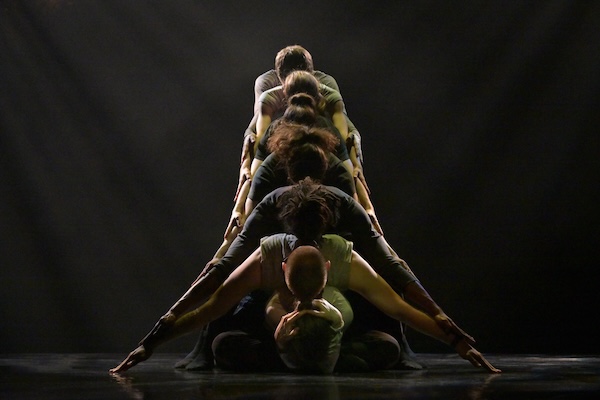
One of the aspects Fletcher and Senez like most about cross-disciplinary work is the ability “to reach a broader demographic of audience members,” said Fletcher. “Every person feels connected, or has their heart opened, in different ways by different things. Human beings are layered and complex, and we use different mediums, such as film, set design, text and lighting design, to reflect this complexity in our stage environments.
“We love to create textured, visually impactful and theatrical settings which are completely immersive for the dancers,” she continued. “Everything is crafted to highlight the humanity, athleticism and journey of the dancing body – this human instrument is always the focus of our work…. In my pieces, I work co-creatively with the dancers, with Sylvain as visual/set/film designer and with Belle Spirale’s lighting designer Victoria Hunter Bell.”
In Universus, Fletcher also has gotten to work with Magadan – she co-created and dances in Statera.
“Sylvain and I both met Fernando in 2014, when he created White Act for Ballet BC,” Fletcher explained. “I was an original cast member of this work and Sylvain was his rehearsal director, as well as assisted with some of the visual design. We all just clicked … and it has always been a dream of ours to work with Fernando again. When we commission work at Belle Spirale, I am fortunate to get to be one of the performers we bring together.”
Universus would not exist, said Fletcher, without Belle Spirale’s partnership with Chutzpah! She also noted that, thanks to the company’s partnership with Vancouver International Dance Festival, they are able to offer general admission and sliding scale ticket prices, which start at $25. Visit chutzpahfestival.com.

